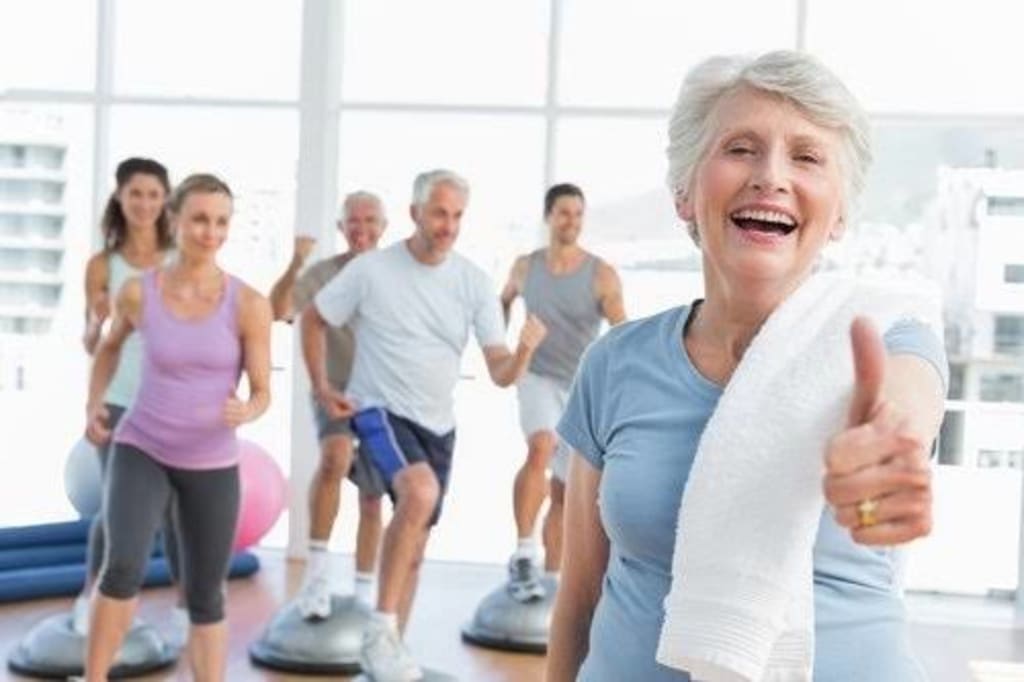How Exercise Impacts Your Mood and Cognitive Function
The Mental Side of Fitness

Here is a rewritten version of the article, expanded to 2000 words:
Exercise: A Holistic Approach to Wellbeing
When we think of exercise, we often focus on the physical benefits: weight loss, toned muscles, and improved cardiovascular health. However, the advantages of regular physical activity extend far beyond the physical realm. Exercise is a powerful tool for enhancing our mental wellbeing, improving our mood, managing stress, boosting cognitive function, and sparking creativity.
The Mental Health Benefits of Exercise
Exercise has long been recognized as a natural mood enhancer. Physical activity triggers the release of endorphins, also known as "feel-good" hormones, which improve our mood and reduce symptoms of anxiety and depression. In fact, studies have shown that regular exercise can be as effective as medication in managing mild to moderate depression.
But the mental health benefits of exercise don't stop there. Physical activity also improves our self-esteem and body image, helping us feel more confident and comfortable in our own skin. This, in turn, can improve our relationships and overall quality of life.
Exercise has also been shown to reduce symptoms of post-traumatic stress disorder (PTSD), obsessive-compulsive disorder (OCD), and borderline personality disorder. Additionally, physical activity has been linked to improved sleep quality, which is essential for overall mental health and wellbeing.
Exercise as a Stress Reliever
In today's fast-paced world, stress is a constant companion for many of us. Whether it's work-related pressure, financial worries, or personal concerns, stress can take a toll on our mental and physical health. Exercise is a potent stress reliever, providing an outlet for releasing pent-up tension and calming the mind.
Physical activity stimulates the production of endorphins, which help reduce stress and anxiety. Exercise also improves our sleep quality, another essential factor in managing stress. By incorporating regular physical activity into our lives, we can better cope with stress and improve our overall wellbeing.
The Cognitive Benefits of Exercise
Exercise is not only good for our mental health; it's also essential for our cognitive function. Physical activity improves blood flow to the brain, boosting our memory, concentration, and problem-solving skills. Exercise also promotes the growth of new neurons and neural connections, reducing the risk of age-related cognitive decline and neurodegenerative diseases like Alzheimer's.
In fact, studies have shown that exercise can improve cognitive function in individuals with Alzheimer's disease, Parkinson's disease, and other neurodegenerative disorders. Physical activity has also been linked to improved academic performance in children and adolescents.
Creativity and Exercise
In addition to its mental health and cognitive benefits, exercise is also a powerful spark for creativity. Physical activity stimulates our imagination and inspires new ideas, whether through the solo activity of jogging or the team dynamic of a sport.
Many famous artists, writers, and musicians have credited exercise with helping them tap into their creative potential. By incorporating regular physical activity into our lives, we can unlock our full creative potential and achieve our goals.
Types of Exercise for Mental Wellbeing
While any exercise is better than none, some types of physical activity are particularly beneficial for mental wellbeing. Here are a few examples:
- Yoga: This low-impact exercise combines physical movement with mindfulness and meditation techniques, promoting relaxation and reducing stress.
- Walking: A brisk walk can improve our mood, boost our energy levels, and provide an opportunity for social connection.
- Swimming: This low-impact exercise is easy on the joints and promotes relaxation, making it an ideal choice for those with anxiety or depression.
- Team Sports: Joining a team sport like soccer, basketball, or volleyball can provide social support, accountability, and a sense of accomplishment.
Incorporating Exercise into Our Lives
With our busy schedules and competing demands, it can be challenging to prioritize exercise. However, there are many ways to incorporate physical activity into our daily lives, even with limited time. Here are a few tips:
- Schedule it in: Treat exercise as a non-negotiable part of your daily routine, just like brushing your teeth or taking a shower.
- Find an exercise buddy: Having someone to hold us accountable and provide social support can make all the difference in sticking to our exercise routine.
- Start small: Begin with short, manageable sessions and gradually increase the duration and intensity as we become more comfortable.
- Mix it up: Vary our exercise routine to avoid boredom and prevent plateaus.
Conclusion
Exercise is a holistic approach to wellbeing that extends far beyond physical outcomes. By incorporating regular physical activity into our lives, we can enhance our mood, manage stress, boost cognitive function, and spark creativity. Whether through team sports, solo activities, or mindfulness exercises, physical activity provides a powerful tool for achieving our full potential. So let's get moving and harness the mental benefits of exercise!
In addition to its mental health benefits, exercise also improves our physical health, reducing the risk of chronic diseases like heart disease, diabetes, and obesity. By prioritizing physical activity, we can improve our overall health and wellbeing, increasing our quality of life and life expectancy.
About the Creator
Enjoyed the story? Support the Creator.
Subscribe for free to receive all their stories in your feed. You could also pledge your support or give them a one-off tip, letting them know you appreciate their work.





Comments
There are no comments for this story
Be the first to respond and start the conversation.